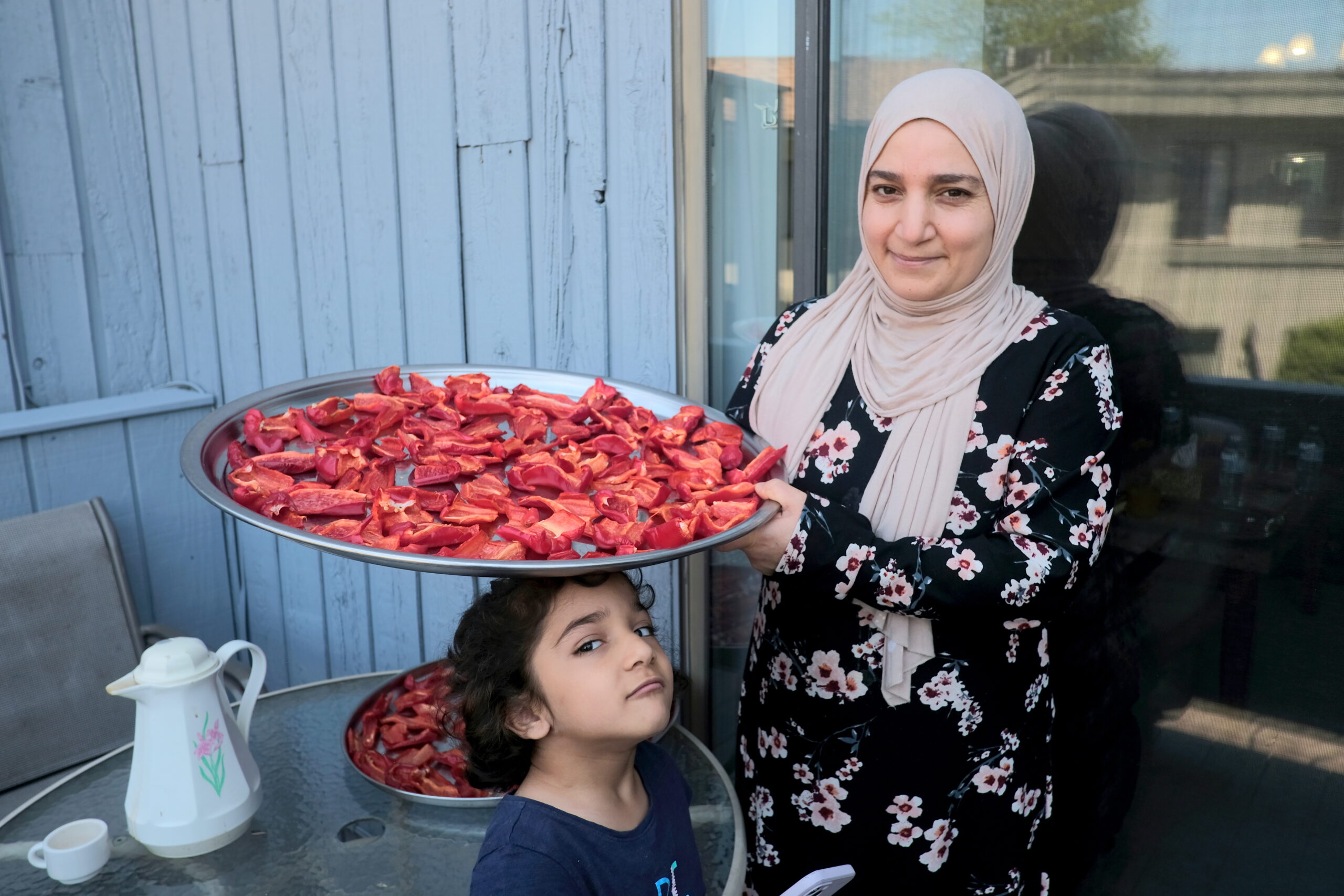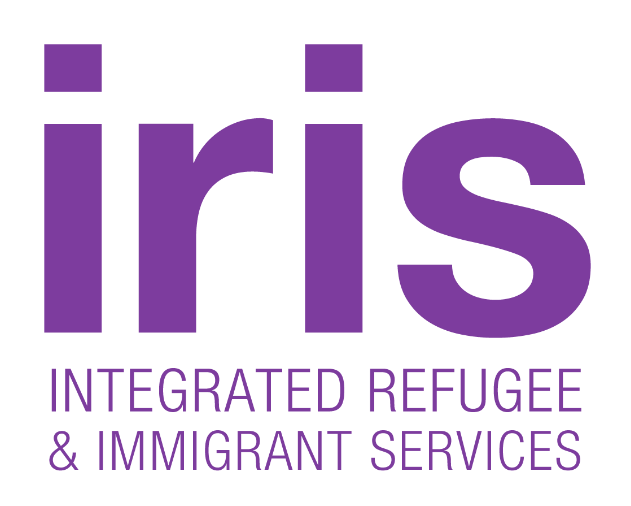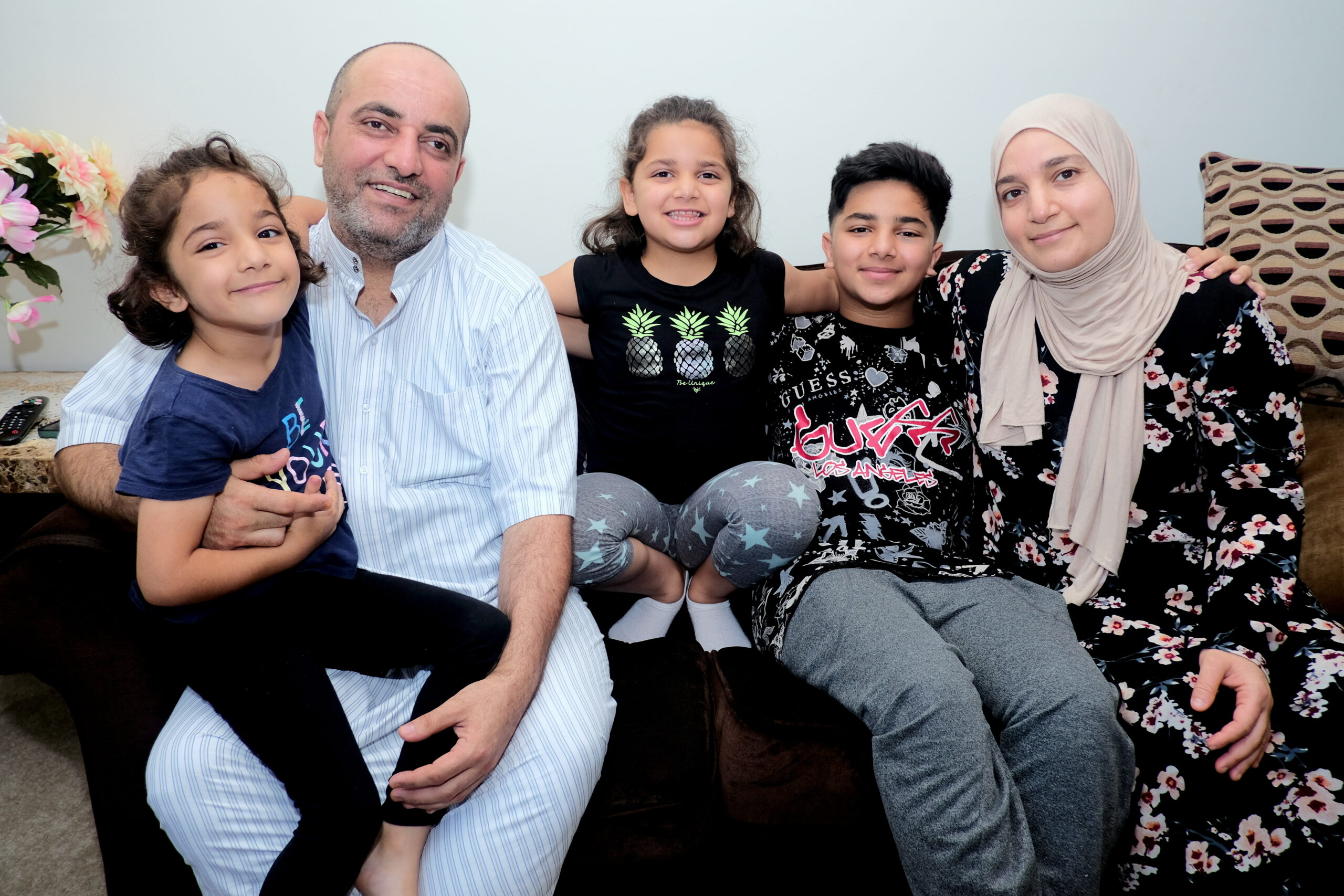By John Curtis
On a Saturday in June, Fadi and Eman Al Asmi and their three children welcomed two visitors from IRIS, offering dates and orange juice in their home in an apartment complex in Bloomfield. Their two daughters, Sham, 7, and Farah, 8, vied for space on their dad’s lap as he and Eman recounted their journey from a war-torn Syria to a new life in Connecticut. Outside on the porch, Eman had left slices of red pepper to dry in the sun. Six years after their arrival, both Fadi and Eman have full-time jobs, the girls are in elementary school, their brother, Hamzi, starts eighth grade in the fall, the family has learned English, and they recently became U.S. citizens.
“It’s more safe here. In Syria it was dangerous for us, for my kids. We moved to Jordan, and we lived there for five years. Then we came to the United States as refugees,” says Eman.
When they arrived in 2016, they were resettled by Interfaith Refugee Resettlement Committee (IRRC), a co-sponsorship group affiliated with IRIS. Since then, IRRC has resettled a family from Iraq and another from the recent evacuation of Afghanistan.
Before forming IRRC, however, members of the group had resettled a Turkish family that, generations earlier had been forcibly removed to Uzbekistan, then part of the Soviet Union. “In Uzbekistan they were in Russia but without any rights as citizens, the right to work, to school, so they applied for refugee status,” said Marilyn Boehm, one of IRRC’s co-chairs.
In 2016, the members regrouped, joined by people from the First Church of Windsor, a local mosque, members of the Loomis-Chaffee School community, and members of other congregations, to form the Windsor Refugee Resettlement Committee (WRRC). “They came together because they were aware of the situation of refugees coming in,” said Boehm. They reached out to IRIS, went through training, and followed IRIS guidelines to set up teams of volunteers.
“We have co-chairs, we have a medical team who follows all their medical care. We have four nurses, an educator team of four or five educators, a whole team of drivers, a small budget group, and one person acting as administrator who handles Google docs and calendars,” Boehm said.
There’s also a housing group that finds an apartment and furnishes it, down to acquiring appropriate kitchen utensils.
With a total of about 50 volunteers, between 20 and 30 are actively involved week to week. Many are retirees who have flexible schedules, including Boehm, who was a pediatric physical therapist.
Between 2018 and 2021, after resettling the Al Asmi family and the family from Iraq, the group took a hiatus. The Trump administration had slowed the flow of refugees to a trickle, but the group also needed to take a break. “Part of it was us regrouping and revitalizing,” said Boehm.
With each resettlement the group has reviewed what worked and what didn’t. But each time, Boehm says, there are new lessons to learn. “Even when you adjust what you thought you should do differently, the next family is completely different. You tailor it somewhat to each individual family.”
Nevertheless, two key lessons emerged. Boehm stressed the importance of filling out a change of address form with the post office as soon as the family arrives. Misdirected letters can lead to serious complications as families apply for benefits. The other lesson was to ensure that the family’s sponsor is on the contact list for everyone who interacts with the family—doctors, dentists, etc. One family missed a medical appointment because they couldn’t understand the doctor’s text reminder in English.
Fadi and Eman Al Asmi left their home in Dara in 2012 because the civil war was hitting too close to home. While driving to visit his father in a hospital in Damascus, Fadi came under fire from Syrian soldiers. “Maybe God gave me another life,” he said of his close call.
They stayed five years in Amman, and their daughters were born there. Their application to enter the United States as refugees was granted in 10 months. While Fadi celebrated, Eman was not so sure. “I was so excited, but my wife doesn’t like coming here,” Fadi said.
“I am crying. I wanted to go back to Syria,” said Eman. “We don’t know any people. We don’t have any idea about the United States. It’s hard when you go to a different country. But he told me we should go.”
On their arrival, Eman’s doubts dissipated. “We came to our apartment at 9 o’clock at night,” she said. A Muslim woman met them at the door with a traditional Middle Eastern dinner of chicken and rice. IRRC volunteers were there to greet them. “When we opened the car door, I was so happy,” Eman said as she recalled the volunteers saying, “Welcome to your apartment. We are a family, we’ll work together. Don’t worry about anything, just take a shower, eat, and sleep. Tomorrow we’ll be here.”

Eman still misses her family in Syria and being able to walk to do errands in her neighborhood. “In my country everything is close,” she said. Here, she and Fadi have to drive everywhere.
She works as a housekeeper at a retirement home and Fadi works as a baker, the trade he learned in Syria. “The dad is a master baker,” said Boehm. “He came with this wonderful skill as a pastry chef, and he’s found himself a niche now.”
Both of the other families WRRC has resettled are doing well. The Iraqi family of six that arrived in 2018 now owns a home in West Hartford. WRRC recently celebrated the 100-day anniversary of the Afghan family’s arrival. The husband has found a full-time job in furniture assembly while his wife is at home with a new baby. Their other four children are in elementary, middle, and high schools.
Reflecting on these experiences, Boehm says, “It’s been fun even though at times it’s been overwhelming and frustrating—the amount of paperwork and details and following up here and there.” But, she adds, “It makes me more aware of all the cultural differences in the world and in the country and how good people can perceive things differently. The more open you are to looking at things differently, the more you’ll see.”

